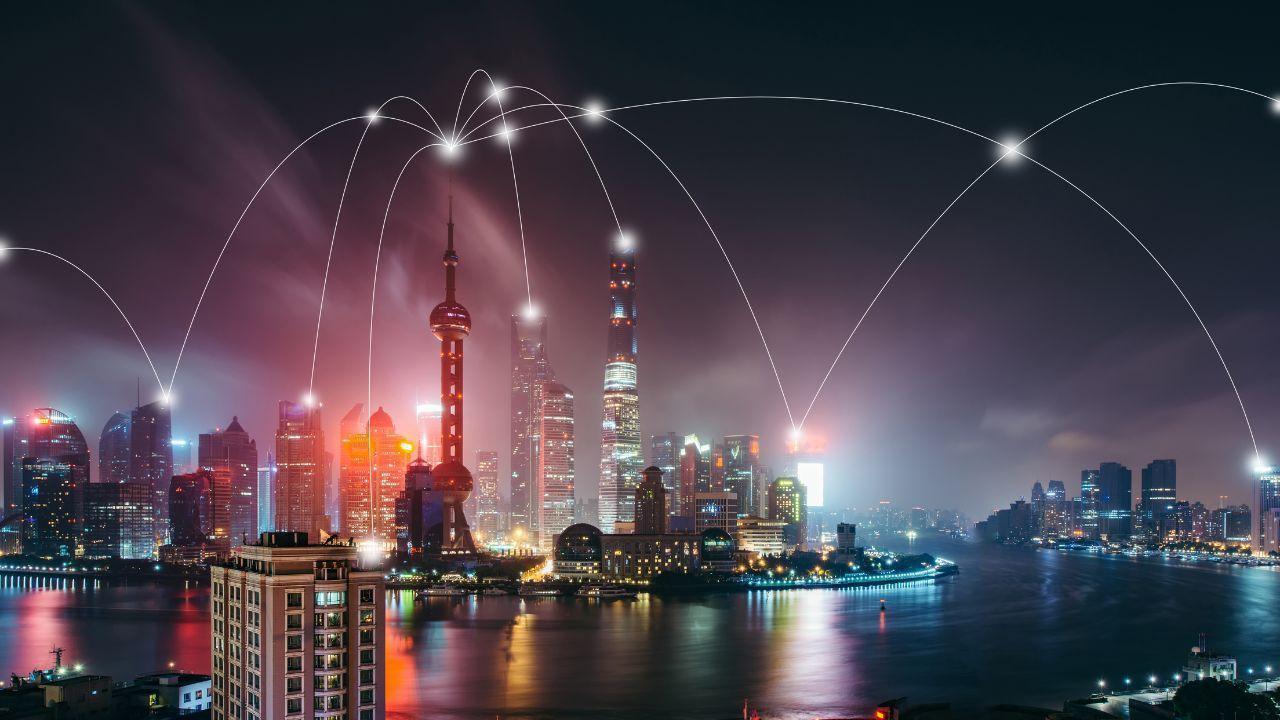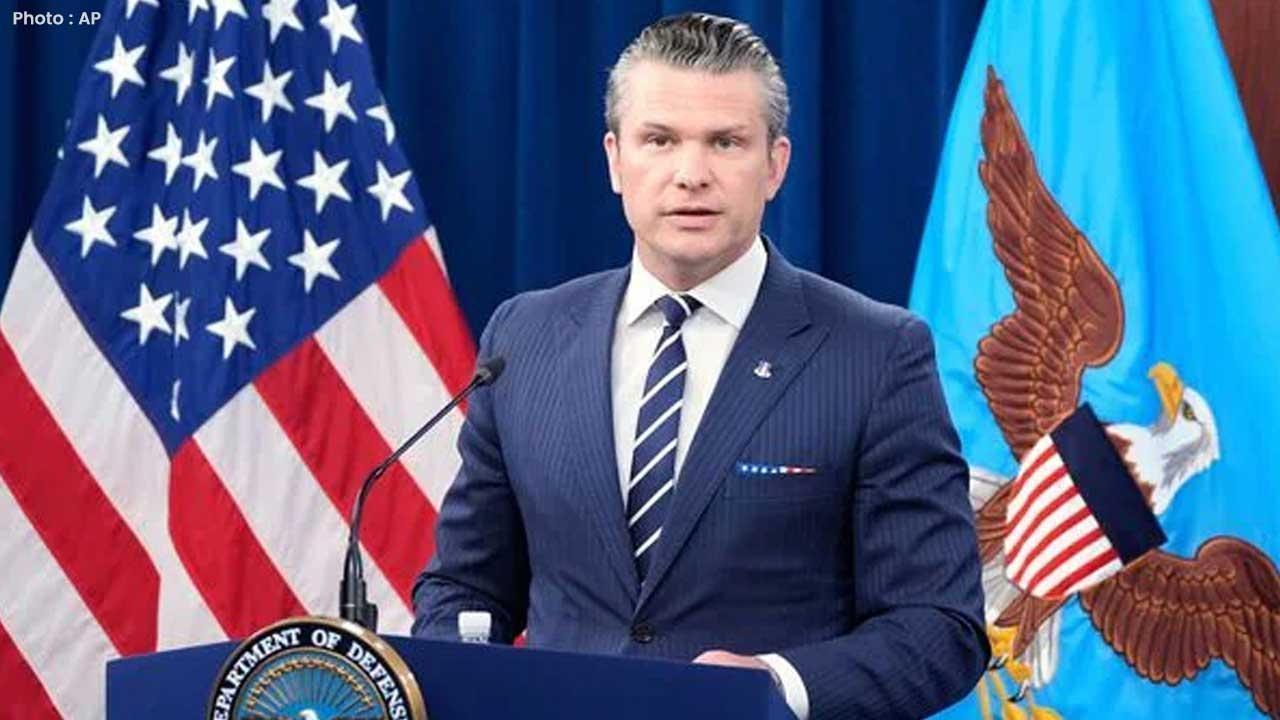
Post by : Vansh
In today's digital era, cities are no longer just a collection of roads, buildings, and people. They are becoming living, breathing ecosystems fueled by data and technology. Wired for progress, cities across the globe are rapidly evolving into smart cities, redefining how we live, work, and interact with our environment. These cities leverage digital solutions to solve complex urban problems, ensuring efficiency, sustainability, and a better quality of life for their residents.
At the heart of this transformation is the concept of a smart city—a metropolitan area that uses advanced technologies such as the Internet of Things (IoT), Artificial Intelligence (AI), cloud computing, and big data to optimize infrastructure, improve services, and empower citizens. A smart city collects data through interconnected devices and systems, analyzes it in real time, and uses the insights to automate responses or inform better decision-making.
From traffic lights that adjust automatically to reduce congestion, to waste bins that notify collection services when they’re full, these technologies turn everyday urban elements into intelligent systems.
The shift toward smart cities is not just a trend—it’s a necessity. With urban populations expected to reach nearly 70% of the global total by 2050, cities face mounting pressure on their infrastructure, transportation, housing, and energy systems. Traditional methods of city management are simply not scalable.
Technology offers solutions to these challenges. Wired for progress, these urban centers are reimagining how services are delivered. Smart water management reduces waste, predictive policing improves public safety, and smart buildings lower energy consumption through automation and real-time monitoring.
Moreover, connectivity plays a central role in the rise of smart cities. 5G and high-speed internet enable seamless data exchange between devices, sensors, and centralized systems, creating a city that thinks, responds, and evolves in real time.
One of the most promising aspects of smart cities is their commitment to sustainability. With climate change becoming an urgent global issue, cities are turning to green technology to reduce their carbon footprint.
Smart grids, powered by AI, optimize energy distribution and reduce outages. Electric vehicle (EV) charging stations are increasingly integrated into urban infrastructure. Public transportation systems, enhanced by data analytics, become more efficient, reducing reliance on private vehicles.
For example, cities like Copenhagen and Amsterdam have implemented intelligent bike-sharing systems and data-driven traffic management, significantly reducing emissions and improving air quality.
Smart cities are not just about efficiency; they’re also about enhancing the quality of life. With the help of technology, cities can create safer, healthier, and more inclusive environments.
Healthcare services are being revolutionized with telemedicine, AI diagnostics, and wearable tech that allows for real-time health monitoring. Education is becoming more accessible through smart classrooms and digital learning platforms.
Additionally, real-time public transit updates, smart parking systems, and integrated apps help citizens navigate cities with ease. Public Wi-Fi zones, smart lighting that adjusts to natural light, and digital citizen portals all contribute to a more connected and responsive urban experience.
Cities around the world are leading the charge when it comes to smart innovation:
Singapore is often hailed as the smartest city in the world, with initiatives in place for digital identity, traffic management, and elderly care through tech solutions.
Dubai, wired for progress, has launched the Smart Dubai initiative, introducing blockchain for government operations, AI-powered transport systems, and even robot police.
Barcelona has transformed its infrastructure with IoT systems that manage lighting, irrigation, and waste, leading to improved public service efficiency and sustainability.
These examples demonstrate that smart city implementation is not a one-size-fits-all solution. Instead, cities tailor technologies to address their unique challenges, from air pollution to overcrowded transit systems.
Despite the many benefits, the journey to becoming a smart city is not without obstacles. One of the most pressing concerns is data privacy and security. With so many connected devices collecting sensitive information, ensuring cybersecurity is critical.
Moreover, the digital divide—where low-income or marginalized communities lack access to technology—can widen inequality if smart solutions aren’t implemented inclusively. Cities must ensure that advancements benefit all residents, not just the tech-savvy or affluent.
There’s also the question of investment. Building and maintaining a smart city requires significant funding and infrastructure development. Smaller or developing cities may struggle to keep up without public-private partnerships or government support.
The future of smart cities is incredibly promising. As AI becomes more sophisticated and IoT devices more advanced, cities will become increasingly adaptive. We’ll see urban environments that predict problems before they occur—like rerouting traffic in anticipation of congestion or adjusting energy usage based on real-time demand.
Moreover, augmented reality (AR) and virtual reality (VR) may be used to help urban planners visualize changes before implementation. Smart cities might soon offer digital twins—virtual models that mirror real-world systems—to test and simulate changes without risking real-world consequences.
The integration of quantum computing, advanced robotics, and decentralization through blockchain could redefine what it means to manage and live in a city.
The information presented in this article is intended for general knowledge and informational purposes only. Readers are encouraged to verify details independently and consult official sources where necessary. The content reflects ongoing trends and developments and may evolve over time. Published in association with MiddleEastBulletin news network.










Pageau's Overtime Goal Propels Islanders to 4-3 Victory Over Golden Knights
In a thrilling overtime finish, Jean-Gabriel Pageau leads the Islanders past the Golden Knights 4-3,

MLB Awards: deGrom and Acuna Jr. Shine as Comeback Players
Jacob deGrom and Ronald Acuna Jr. celebrated MLB Comeback Player Awards, alongside Ohtani and Judge

Portugal Confronts Ireland in Pivotal World Cup Qualifier
Portugal, led by Cristiano Ronaldo, faces Ireland in a vital Group F World Cup qualifier that could

Haaland's Brilliance Leads Norway to 4-1 Victory Against Estonia
Erling Haaland showcases leadership as Norway crushes Estonia 4-1, boosting their World Cup ambition

Hawks Triumph Over Jazz; Suns and Raptors Secure Victories
Hawks' Onyeka Okongwu and Jalen Johnson lead in a thrilling win against Jazz; Suns and Raptors also

Indian Men's Recurve Team Clinches First Asian Gold in Nearly Two Decades
The Indian men's recurve team triumphed over South Korea, securing their first Asian gold in 18 year